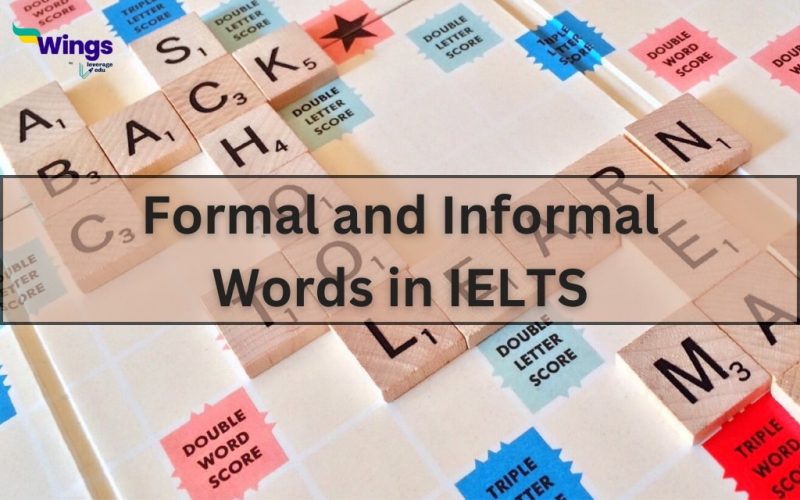Formal language is typically used in academic and professional settings, while informal language is more commonly used in casual conversations. In IELTS, formal language is expected in the writing section, especially in the academic writing task. However, in the speaking section, both formal and informal words can be used depending on the context.
Using informal language in the writing section can lead to a lower score as it may be seen as inappropriate for an academic context. Informal language includes contractions like ‘gonna’, ‘wanna’, and ‘gotta’. These words should be avoided in formal writing as they are considered too casual. Therefore, this blog article focuses on listing some of the highly used formal and informal words in IELTS that every test taker should know.
Also Read: IELTS Writing Task 2 Topics
Difference Between Formal and Informal Words
When taking the IELTS exam, it’s important to understand the difference between formal and informal words. Formal language is typically used in academic, professional, or legal contexts, while informal language is used in casual, everyday conversations.
In the IELTS exam, using formal language is crucial, as it demonstrates your ability to communicate effectively in a professional setting. Using informal language can negatively affect your score, as it suggests a lack of awareness of appropriate language use.
Some examples of formal words include “consequently,” “additionally,” and “furthermore,” while informal words include “so,” “also,” and “moreover.” Using formal words shows a higher level of education and command of the language.
However, it’s important to note that using formal words alone does not guarantee a high score in the IELTS exam. It’s also essential to use them appropriately and in context to effectively convey your ideas.
Also Watch: Everything You Need to Know about IELTS
15+ Formal and Informal Words to Use and Avoid in IELTS
As an IELTS candidate, it is important to be aware of the difference between formal and informal language. The use of appropriate language can have a significant impact on your IELTS score, particularly in the writing and speaking sections. Hence, take reference from the table below to understand which formal and informal words to use and avoid in IELTS.
| Formal Words(To Use) | Informal Words(To Avoid) |
| Relatives | Folks |
| Senior citizens | Old People |
| Acceptable | Ok |
| Consequently | Anyway |
| Furthermore | Got |
| Nonetheless | Like |
| Nevertheless | Stuff |
| Moreover | Things |
| Henceforth | Kinda |
| Inevitably | Sorta |
| Accordingly | Yeah |
| Conversely | Gonna |
| Notwithstanding | Wanna |
| Thereafter | Ain’t |
| Subsequently | Y’all |
| Invariably | Dunno |
| Nonetheless | Lotta |
| Therefore | Outta |
FAQs
Some of the good informal words to use in IELTS are kids, folk, awesome, rubbish, stupid, and many more.
When you use long and complex sentences while attempting the IELTS writing section, then it is classified as formal writing. On the contrary, informal writing comprises short and simple sentences.
Yes, candidates are allowed to use informal writing in IELTS. The general section (task 1) of IELTS writing requires candidates to write in both formal and informal language.
We hope the information mentioned in this blog will help you in improving your formal and informal vocabulary for IELTS. Candidates who want to prepare for IELTS or any other language proficiency test, can Build a plan with Leverage Edu‘s Leverage Live classes and our top trainers and strengthen your English score as well as your application so that you can secure your spot in your dream college.
Fulfil your dreams of studying abroad with Leverage Edu, to get a free counselling session, reach us at 1800572130.
 One app for all your study abroad needs
One app for all your study abroad needs















 45,000+ students realised their study abroad dream with us. Take the first step today.
45,000+ students realised their study abroad dream with us. Take the first step today.